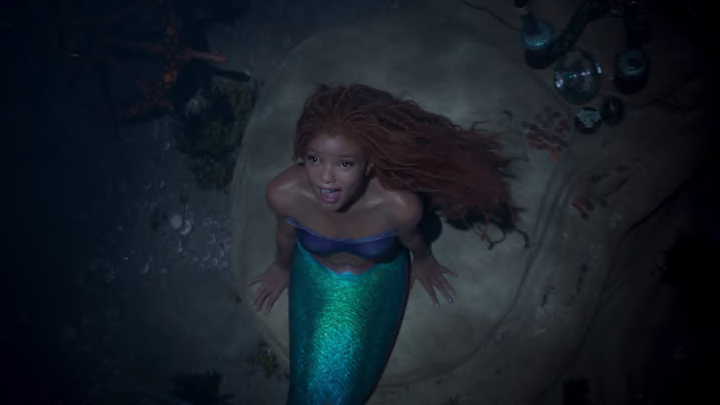It's no secret that Disney has been struggling at the box office. Prior to the pandemic, it felt like Disney couldn't miss. From Star Wars to Marvel to Pixar and Walt Disney Animation originals, it felt like every new release had the potential to top a billion dollars at the box office.
But in recent years, it seems that Disney has lost its way. A focus on streaming — partially brought on by the pandemic — resulted in a change in how viewers consume media. Naturally, this impacted the performance of new theatrical releases.
That's really only telling part of the story with Disney though. Despite the rise of streaming platforms, we've still had very successful theatrical releases. The Super Mario Bros. Movie, Barbie, Oppenheimer, and Dune 2 are some of the more recent successful films, proving that if a movie is intriguing enough, audiences will flock to theaters. But for some reason, Disney has failed to recapture that box office magic.
Animated filmmaker John Musker — who directed such Disney films as The Little Mermaid, Aladdin and Hercules — belives the reason for Disney's struggle can be traced to the company's prioritizing of political messaging over story.
“I think they need to do a course correction a bit in terms of putting the message secondary, behind entertainment and compelling story and engaging characters,” Musker told Spanish outlet El País at this year’s Animayo International Summit in Gran Canaria, Spain (via Variety).
“The classic Disney films didn’t start out trying to have a message. They wanted you to get involved in the characters and the story and the world, and I think that’s still the heart of it,” Musker added. “You don’t have to exclude agendas, but you have to first create characters who you sympathize with and who are compelling.”
Many moviegoers — especially those who sit on right side of the political spectrum — have accused Disney of becoming "woke." According to Merriam-Webster dictionary, to be "woke" means to be "aware of and actively attentive to important societal facts and issues (especially issues of racial and social justice)."
On the surface, that doesn't sound bad; but, conservatives often use it with negative connotations. When a Disney film struggles, they point to it being "woke." Some of the criticism stems from Disney re-releasing live-action adaptations of previous animated classics — such as The Little Mermaid — but recasting the character with someone of a minority race. Or they harp on Marvel movies and shows that now focus on minority or female characters, such as Captain Marvel or Ms. Marvel. Pixar's Lightyear was heavily attacked for including a same-sex kiss.
These are just some examples of what some on the right deem "woke" ideology. It's the injection of what some consider progressive political messaging into a movie, but without it actually amounting to any meaningful messaging. In other words, Disney can be viewed as trying to score progressive political points, but doing so in the most shallow of ways.
Rather than actually trying to tell an original, interesting story, Disney seems more focused on ticking progressive checkboxes.
While some may write off Musker's criticism as simple right-wing grifting, it should be noted that he co-directed 2009's The Princess and the Frog, which depicted Disney's first Black princess.
“We weren’t trying to be woke, although I understand the criticism,” Musker said of the ground-breaking animated film.
Musker shared his thoughts on Disney's live-action remakes which often take the stories of the original animated classic and simply swap the race of the main character.
“Companies are always like, ‘How do we reduce our risk? They like this, right? We’ll just do it again and sell it to them in a different form,'” he said. “Or they think, ‘Well, we could make it better.’”
Musker specifically took aim at 2023's live-action adaptation of The Little Mermaid, saying, "They didn’t play up the father-daughter story, and that was the heart of the movie, in a way. And the crab — you could look at live animals in a zoo and they have more expression, like with ‘The Lion King.'"
"That's one of the basic things about Disney, is the appeal,' he added. "That's what animation does best."
Musker's comments come as Disney is facing a bit of a reckoning at the box office. Their next live-action adaptation Snow White has already come under fierce criticism, with many taking aim at the film's main casting of Rachel Zegler as Snow White. The criticism that the "fairest" princess will be portrayed by a Latina actress was dismissed as racist and misogynistic backlash.
I don't think race-swapping a character is necessarily some sort of political message. But I can see how it comes off as a lazy way for Disney to try to appeal to different minority groups.
There's no denying Rachel Zegler is an incredible actress, having appeared in West Side Story. And in all fairness, the skin complexion of a fictional character shouldn't matter at all. At the same time, if you are going to change the race of an iconic character, shouldn't it have some sort of impact on the story you are telling or the character itself? Or is Disney simply trying to take the easy route with its storytelling?
